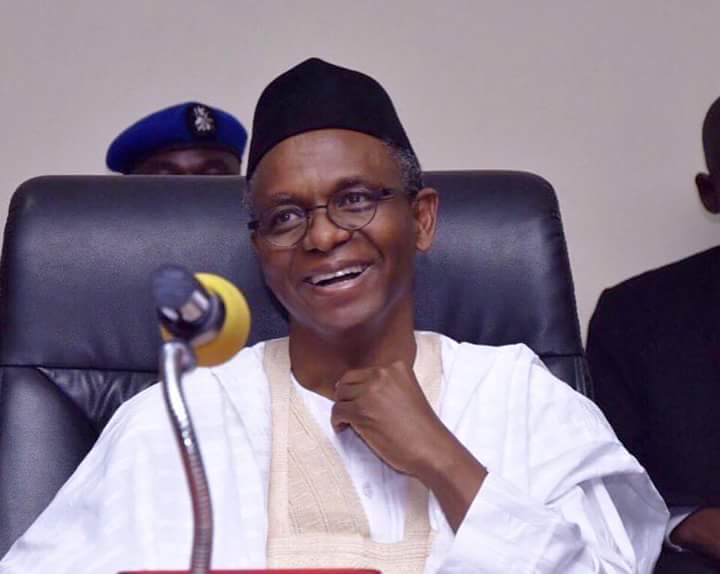Kaduna State will on Saturday earn the distinction of being the first state in Nigeria to deploy electronic voting.
The state will also be the second sub-nation or nation to use the technology after the nation of Namibia.
E-voting, as it is popularly called, will be deployed in the state’s local government election scheduled for tomorrow.
The State Governor, Mallam Nasir el-Rufai, made this known in a series of tweets on Friday.
He said, “Voters in Kaduna State are set to make history as the first electors in Nigeria to use electronic voting. Elections to elect Chairmen and Councillors for the 23 Local Government Councils in the state are scheduled for tomorrow, Saturday, 12 May 2018.
“At least ten countries currently use electronic voting, and Kaduna State seems poised to be the first sub-national to adopt it. Tomorrow’s election would make Kaduna State the second place in Africa to use electronic voting, after Namibia.
“When voters in the state arrive their polling units, they will not see any ballot paper. After accreditation, they will instead find an electronic voting machine that displays the logos of the political parties participating in the election.
“By pressing the logo of their preferred political party, the voter registers a choice that is recorded and acknowledged by the machine. The process is conducive to fast counting of results and it shuts the door to ballot-stuffing.
“Governor Nasir El-Rufai has explained that the Kaduna State Government opted for electronic voting to promote transparency and electoral integrity. He said democracy benefits when election results reflect the actual choices made by voters.
“Dr. Saratu Binta Dikko-Audu, the chairman of the Kaduna State Independent Electoral Commission (SIECOM), and her commissioners proposed that electronic voting machines be procured to guarantee voting integrity, the El-Rufai government obliged.
“The leadership of SIECOM also undertook a study visit to Brazil to see how electronic voting works in that country. Following that study trip, SIECOM made a formal presentation to the Kaduna State Executive Council which made a commitment to fund the procurement of the EVMs.
“Then appropriate legislation was enacted to support the new system. The Kaduna State Independent Election Commission Law No.2 of 2018, which governs the conduct of local elections, makes provisions for electronic voting.
“About 6000 units of the electronic voting machine were bought. Public enlightenment on the machines was done, using public demonstrations and an online video. SIECOM lost 140 of the EVMs to the recent fire in its offices.
“The remaining machines are more than sufficient for the 5,101 polling units in the state.
“Please, note that only voters with Permanent Voter’s Card are eligible to vote.
“The Electronic Voting Machine (EVM) is lightweight and easy to transport, as no unit weighs more than 10kg. With a battery life of 10-16 hours depending on conditions, it facilitates an automated process that cuts out bank and void votes and ensures quick counting of results.
“Each EVM has transparent windows, a touch screen on which political party logos are displayed, and green and red buttons for voters to press to affirm their choice or to cancel.
“The Electronic Voting Process: 1. Voter presents PVC to Election Officer 2. Voter credentials verified from register 3. Election Officer activates Electronic Voting Machine 4. Voter selects logo of candidate’s political party by pressing touch screen 5. Voter verifies or cancels selected party logo 6. Voter presses OK button to confirm choice. 7. EVM prints ballot receipt for voter, containing SIECOM logo and other details, including logo and name of party chosen, date and time of vote cast and the serial number of the EVM.
“KDSG is joining a select group of polities that practice electronic voting. In fact, Kaduna State is the first sub-national in the world to adopt the system. Countries that use Electronic Voting include: USA, Belgium, Brazil, Bolivia, Mexico, Namibia and Philippines.
“Personnel: • 13,000 ad-hoc staff have been trained by SIECOM as Presiding and Assistant Presiding Officers • Another 13,000 ad-hoc staff would work as poll clerks.”



Leave a Reply